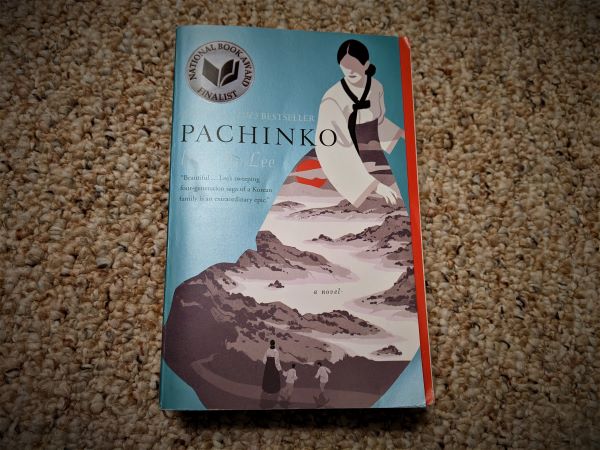“Sunja-ya, a woman’s life is endless work and suffering. There is suffering and then more suffering. It’s better to expect it, you know.”
Min Jin Lee doesn’t waste much time in setting the tone of her book “Pachinko.”
That quote appears on page 27, and comes from a woman at the fish market speaking to Sunja, a teenager at the time who ends the story on her knees in front of a tombstone. The space in between is a beautifully tragic set of ups and downs involving four generations of her family.
“For a woman, the man you marry will determine the quality of your life completely. A good man is a decent life, and a bad man is a cursed life — but no matter what, always expect suffering, and just keep working hard,” the woman at the market goes on to tell Sunja.
That push and pull of influences, even from the well-meaning bad men, frustratingly defines so much of Sunja’s life, no matter how much she tries to control it or hope that the malign influences go away and stay away. Tragedy finds her at seemingly every possible corner, and yet she continues on, day after day, trying to make the best life for her family, particularly her boys Noa and Mozasu. They boys have their own struggles with those seemingly fated influences, but at the same time seem to have more control — thanks to societal pressures and allowances — to try to outrun more of the bad and chase more of the good, to divergent degrees of success.
The reading experience of this book was one that very frequently meant ending a chapter and taking a deep breath. It was an experience that left few pages ear-marked and yet the weight of the story built on me as it went along.
Among the things I did flag was one involving the two boys that reminded me of my own experience as a teenager.
“The English class had fifteen pupils who attended three nights a week. Until Mozasu showed up, Yumi had been Pastor John’s best student. Mozasu had an enormous advantage over her since he had been unintentionally studying with his brother, Noa, for years by being his at-home English quiz partner, but Yumi did not mind.”
When I was in high school, for the first two years I got a ride to school with my older brother. We were both taking Spanish classes, but I was a year behind him in the curriculum. On days he had a test, he asked either me or my sister to quiz him as he drove. Fast-forward a year later, and well, vocabulary tests seemed quite easy since I already spent a year reviewing the terms.
One of my classmates even protested one day when I used a contraction we had never discussed, but which I had seen repeatedly in my brother’s worksheets. We were playing some kind of review game that involved a member of each team to go up to the chalkboard and quickly write out a sentence that met whatever criteria. To save time, I wrote “profe” instead of “profesora” and thankfully my profe agreed that while it was slangy, it was not necessarily incorrect and let us have the point.
This one almost goes without saying since I’m quite late on the train of Pachinko, but if you haven’t already it’s a must-read.
